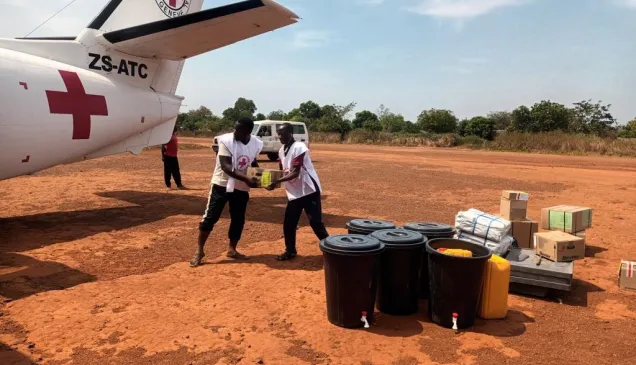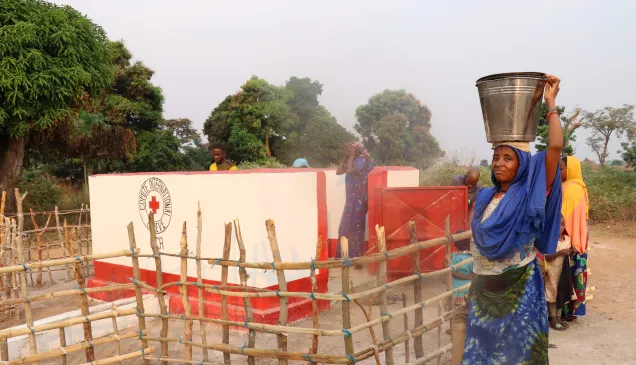The challenge of access to maternal health care for women in the Central African Republic
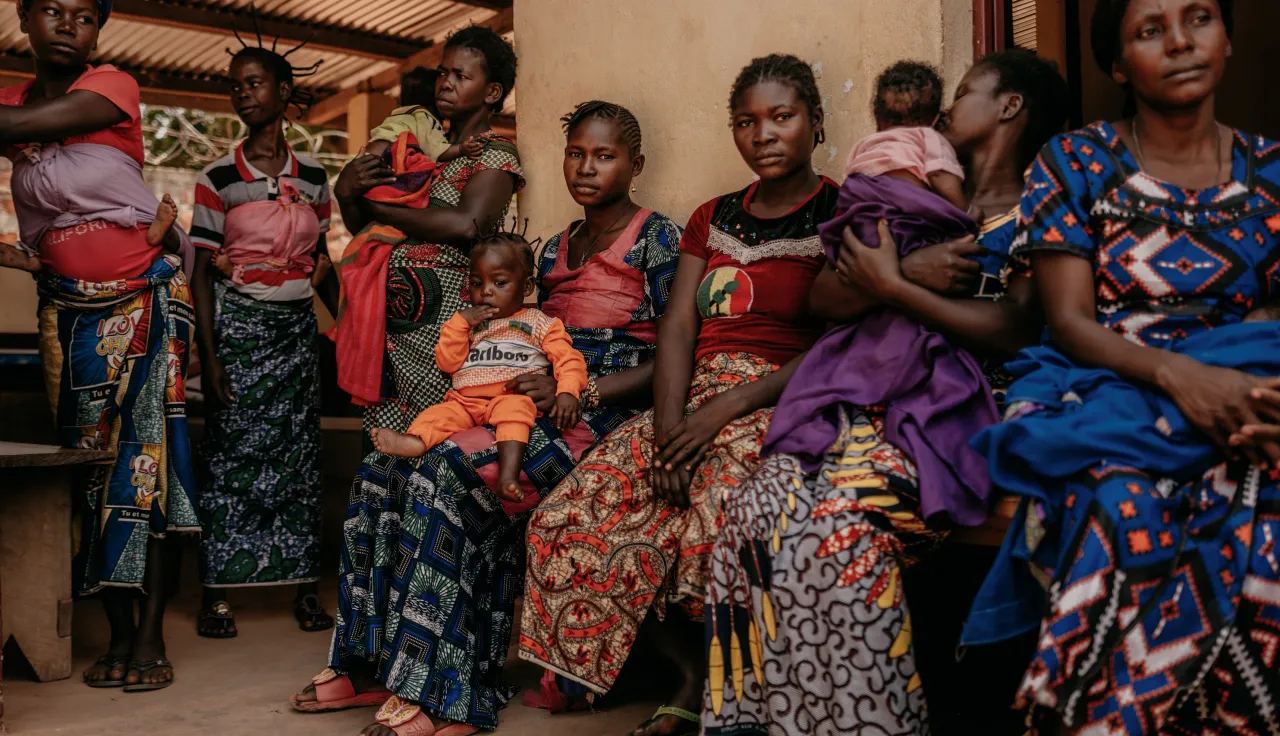
In the Central African Republic, women face major obstacles to access the maternal health care they need. In a country racked by instability and violence, medical care is often badly affected. Because of a lack of funding and qualified health workers, the health-care system is fragile, leaving thousands of people without health care.
The lack of proper health care in the Central African Republic (CAR) is particularly concerning for pregnant women and newborn babies, whose chance of dying as a result of their condition ranks among the highest in the world – mortality risk linked to pregnancy or childbirth is 104 times higher for a woman in the CAR than a woman in France,¹ and 2.8 per cent of newborn babies die within a month of being born.² Given these statistics, maternal health care in the CAR – which was already fragile in times of peace – has become one of the most pressing challenges in the current humanitarian crisis.
The invisible obstacles to access to maternal health care
Several factors are contributing to the crisis. The lack of transport, in particular in the most remote areas, prevents women from getting to health centres to give birth or have prenatal check-ups. Roads are often impassable and the cost of transport, when transport actually exists, is beyond most women’s modest means.
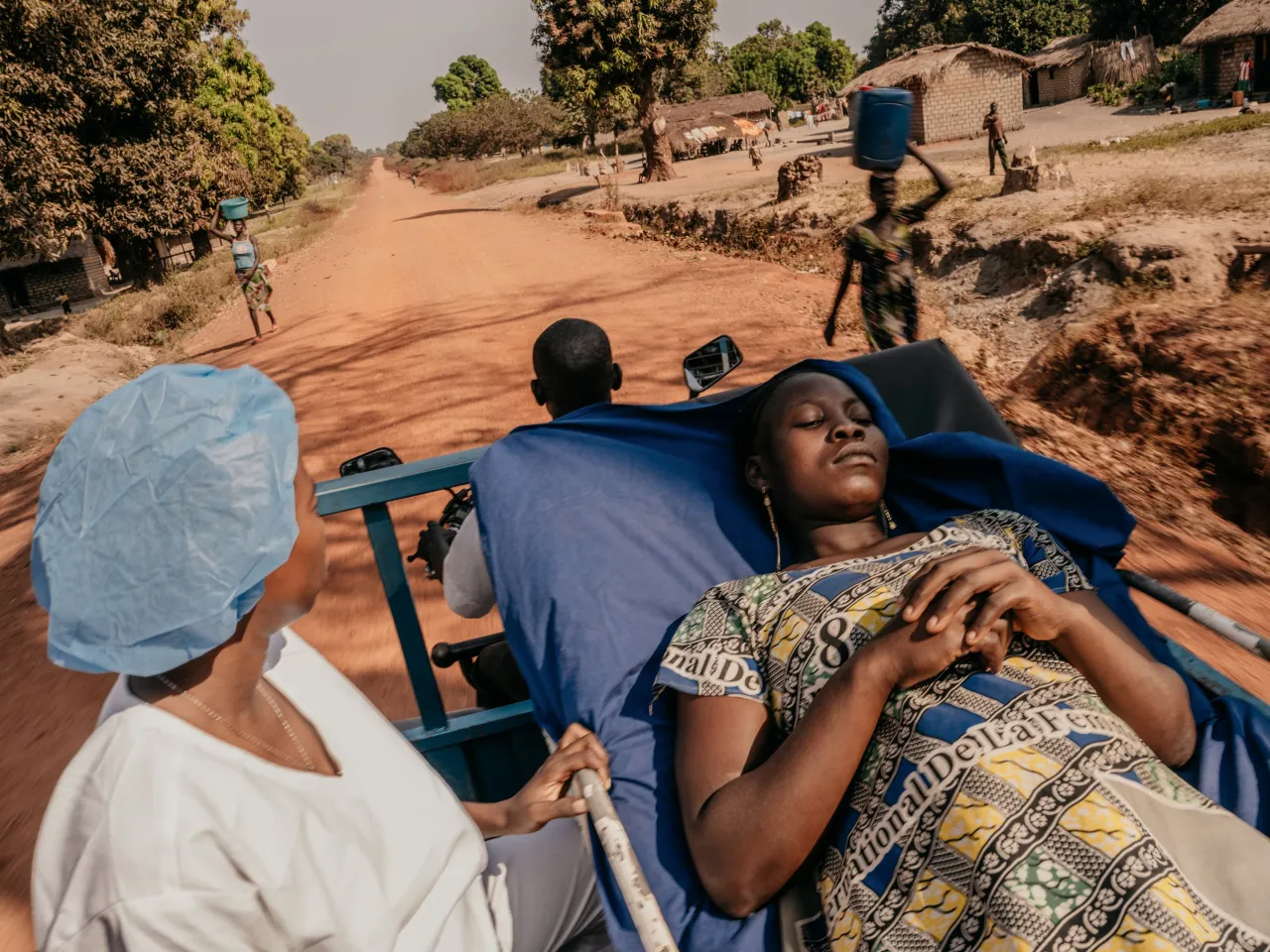
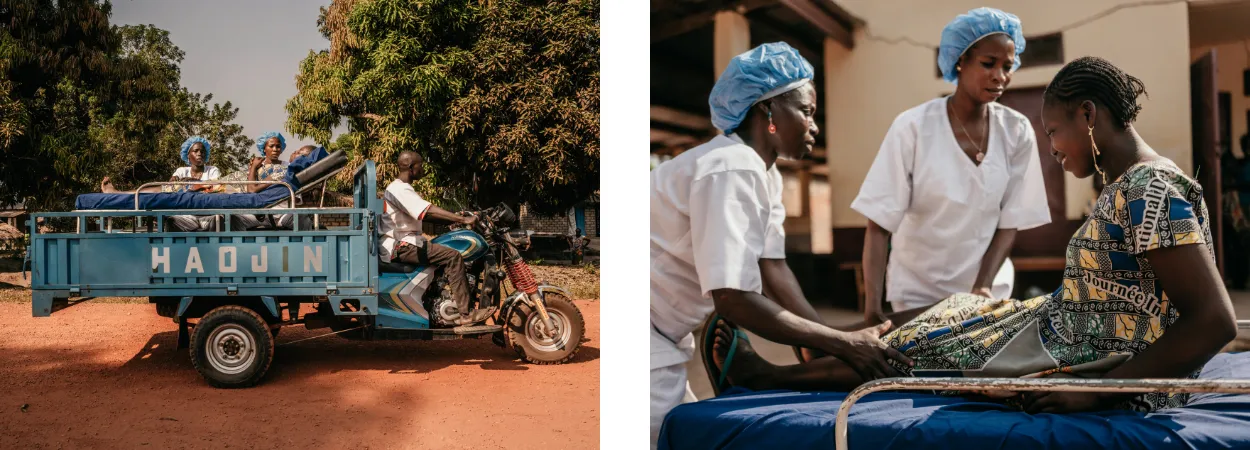
Traditions and cultural beliefs have a major influence on women’s choices in terms of health care. In some communities, many women will not go to health facilities to receive care out of distrust of modern medical practices. This pushes some to choose to give birth at home, often with a traditional midwife, despite the dangers such a choice entails. Nearly one woman in two gives birth at home² – which considerably increases the risk of complications.
In addition, women’s lack of decision-making power in relation to reproductive health issues constitutes another important obstacle. In many families, it is men who take decisions about health-care issues; women may need men’s consent for any medical procedure. This is stopping a large number of women from going to health centres.
The consequences of such obstacles are tragic. Many women give birth in precarious conditions, sometimes with no professional help. And the absence of regular prenatal check-ups means that medical issues that could be treated in their early stages are not caught until they have become life-threatening emergencies.

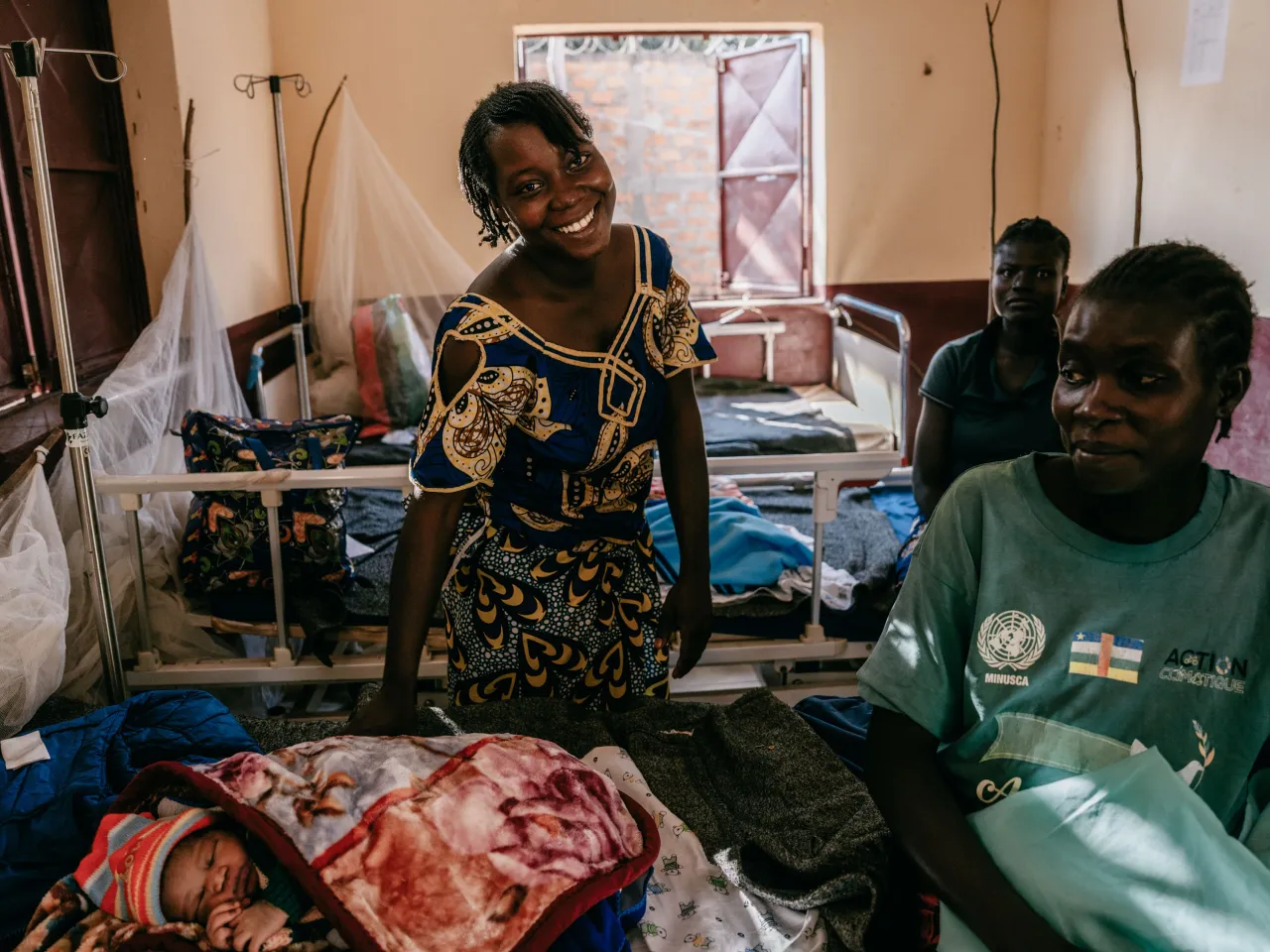
The lack of health workers in the country is a major issue. The World Health Organization (WHO) recommends a threshold density of 23 doctors, nurses and midwives per 10,000 people. In the CAR, the ratio is well below this threshold, standing at 7.3 per 10,000. In some areas, it falls as low as 1.3. The lack of midwives and gynaecologists is particularly acute, especially in rural areas.
The ICRC’s response to the maternal health-care crisis
To make up for the shortage of qualified professionals, the ICRC has launched a training programme in the prefecture of Nana Gribizi. The programme aims to train local women, often traditional midwives, to recognize the warning signs and the dangers to people’s health and to refer people to health centres. “The project has three important roles,” says Viola Nizigiyimana, an ICRC midwife. “First, we train traditional midwives in early referral. Then, we teach them to identify risks and complications. Finally, if a woman is about to give birth and is far from a health centre, they need to be able to deliver the baby.” The programme will partly compensate for the lack of qualified health workers in rural areas, while also functioning as a bridge between traditional practices and the official health-care system.
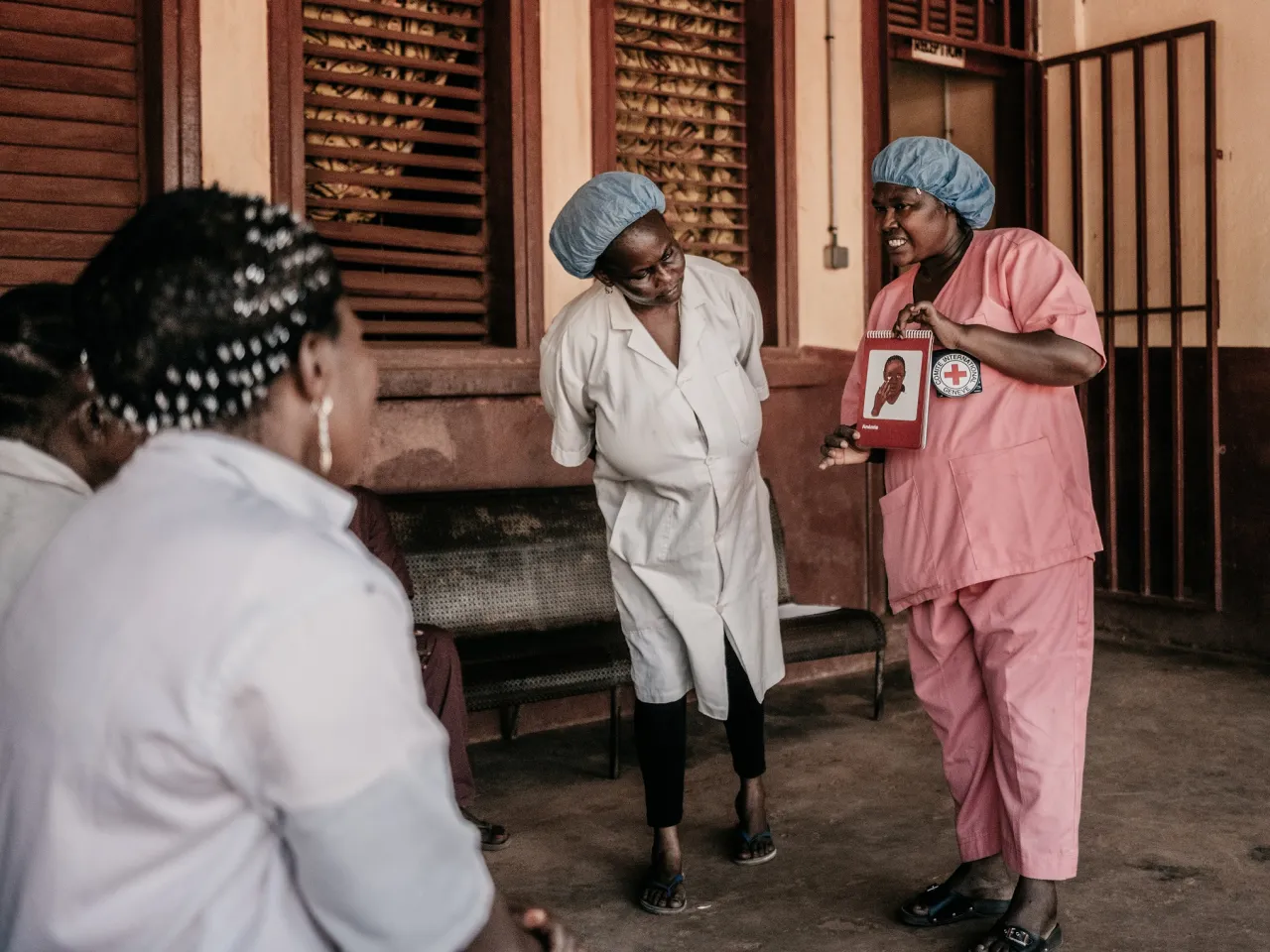
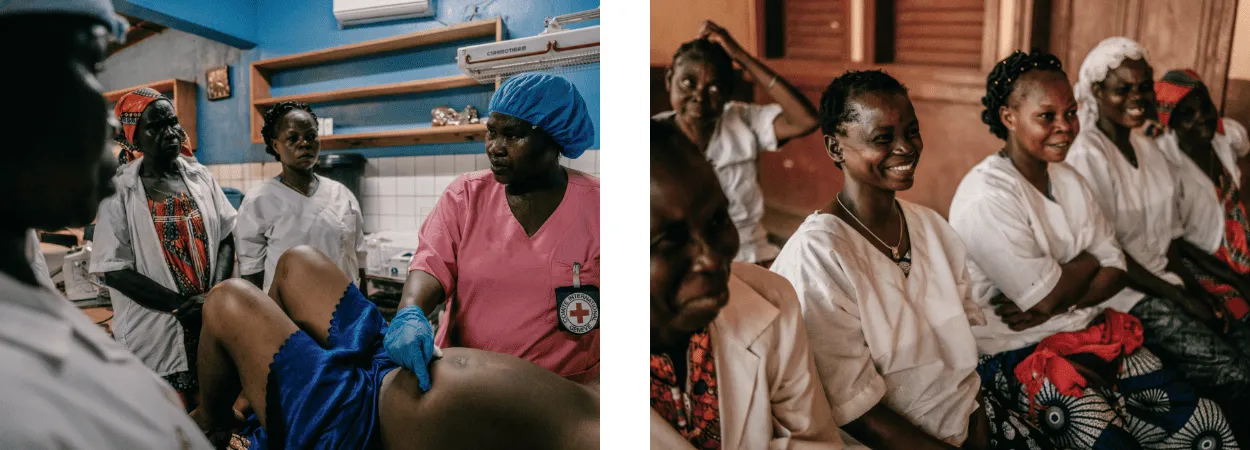
The ICRC has ramped up efforts to meet the needs of pregnant women and newborns in the CAR. In 2024, more than 3,000 women received prenatal check-ups in ICRC-supported health centres. In addition, nearly 850 women gave birth safely in Nana Gribizi District Hospital, of which around 100 births were by caesarean.
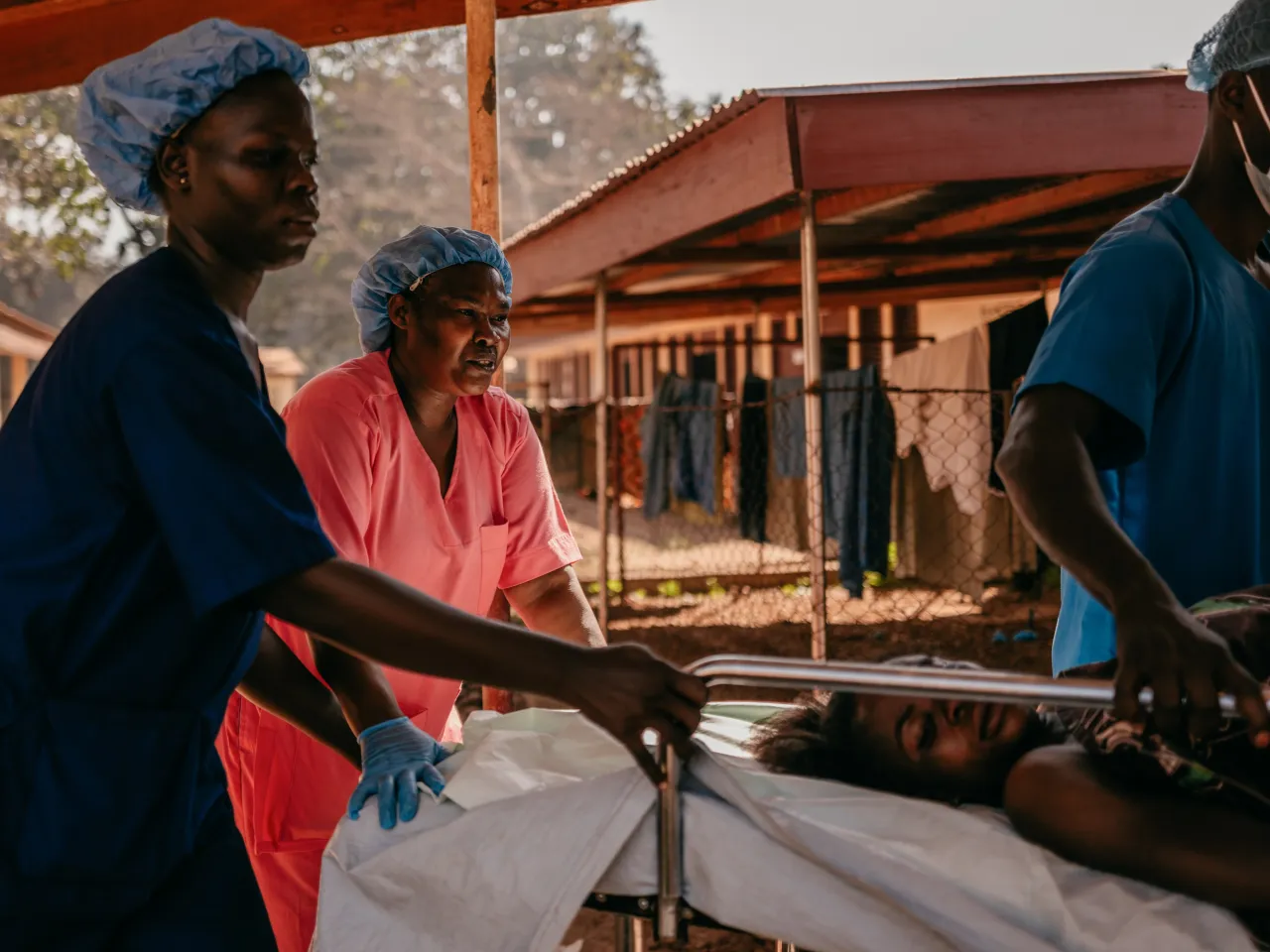
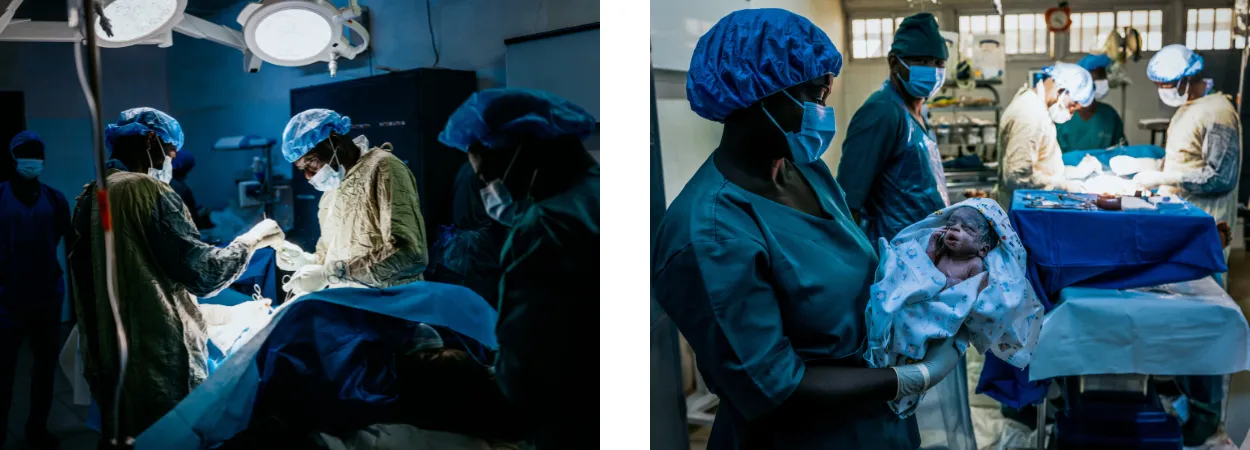
To provide these medical services, the ICRC is funding upgrades to medical infrastructure. For example, three health centres in Patcho, Grevai and Doukouma have been built or renovated, significantly improving conditions for patients and working conditions for staff.
Given the challenges surrounding transport, the ICRC is also putting money into improving the road network. After repairing bridges on the Bianga–Sabegoudé, Alindao–Seignere and Bocaranga–Boleré routes, nearly 20,000 people can now get to health centres more easily.
These endeavours are aimed at strengthening local capacities and ensuring that women can get access to the health care they need, no matter where they live.
But despite all the work of humanitarian actors in the country, huge challenges remain. Both international mobilization and the support of the local communities are still needed to improve access to health care and save lives. Women’s health is a key indicator of a country’s resilience, and it must be given the attention it deserves.
[1] United Nations Population Fund, State of World Population report, 2024 available at: https://www.unfpa.org/sites/default/files/pub-pdf/swp2024-english-240327-web.pdf.
[2] UNICEF, “The midwives at the heart of improving maternal health in the Central African Republic”, 2023, available at: https://www.unicef.org/car/en/stories/midwives-heart-improving-maternal-health-central-african-republic.
Learn more about our work in the Central African Republic
- Central African Republic: Clean drinking water remains a luxury
- Central African Republic: ICRC facilitates the transfer of 19 soldiers from the Central African Armed Forces following their release
- Central African Republic: “I wish the world were more aware of what is happening here”
- Central African Republic: Red Cross delivers a first humanitarian convoy to assist thousands of displaced people
- Nothing to eat: Food crisis is soaring across Africa

